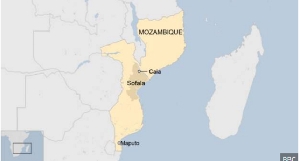- Home - News
- TWI News | TV
- Polls
- Year In Review
- News Archive
- Crime & Punishment
- Politics
- Regional
- Editorial
- Health
- Ghanaians Abroad
- Tabloid
- Africa
- Religion
- Election 2020
- Coronavirus
- News Videos | TV
- Photo Archives
- News Headlines
- Press Release
Opinions of Sunday, 19 June 2016
Columnist: Hinneh, Samuel
Education is key to end child labour in Ghana-daa
By Samuel Hinneh
Child labour and trafficking in the fisheries sector in the country can be minimised or ended through consistent education and awareness creation, says the Development Action Association (DAA), a farmer based organisation and one of the local implementing partners of the Sustainable Fisheries Management Project (SFMP) by United States Agency for International Development (USAID/Ghana).
According to the project manager of the DAA, Mr Abraham Asare, there is the need to sensitise people on child labour and trafficking because some people are unaware of the issue, therefore education is highly required.
“Once people become aware of child labour and trafficking as a practice that needs to be discouraged, they start rethinking about it. Through sensitisation that has taken place, people are willing to take actions against the practice,” he said.
Mr Asare made these known at a sensitisation programme held at Salvation Army School in Apam, Central Region, to mark the World Day Against Child Labour, on the theme, End child labour in supply chains - It's everyone's business!
The event, marked on 12 June every year, to not only create awareness about child labour but also to take concentrate actions to tackle the issue head-on to safeguard health and wellbeing of children around the world.
The International Labour Organization (ILO) chose the theme, child labour and supply chains, given that over 168 million children globally are still in child labour in various supply chains, such as agriculture, manufacturing, services, construction, putting children at risk.
Mr Asare says the fisheries sector employs child labour in all aspect of the supply chain, such as carrying fishes from the shore, to sending them to the markets.
Any work that impairs children’s wellbeing, interferes with their education or is performed at an early age in an unsuitable environment, is classified as child labour. The ILO says child labour impacts on a child’s physical, social, mental, psychological or spiritual development.
“Involving children in hazardous and dangerous business is illegal, therefore there is the need to put in place structures that make the market function by eliminating child labour and trafficking. Every child is supposed to have freedom to access education,” Mr Asare stated.
It is also important to note that when children help their parents at home or assisting in a family business during school holidays, that are generally regarded as something positive because they do not affect children’s health and personal development or interfere with their schooling.
“No one is saying that parents should not teach their children their trade but what we are saying is parents should not let teaching their children their trade prevent children from having effective or meaningful education,” he explained.
The five year USAID’s SFMP-to rebuild marine fisheries stocks and catches through the adoption of responsible fishing practices, child labour component seeks to reduce the practice through behaviour change communications.
Ghana’s open access to fisheries is increasing the use of illegal fishing practices and leading to over exploitation of the fish stocks. There are well known cases of children being used as cheap labour and traded as commodities for monetary benefits. Children are trafficked through middlemen along the coasts and sent to as far as Yeji, near the Volta Lake. As a result, they are exposed to rain storms, cold weather and risk of drowning.
The Executive Director of the DAA, Lydia Sasu, says middlemen usually end up physically assaulting children who refuse to undertake activities assigned to them, as a result children become timid and unable to develop into their full potential.
She called on parents to avoid giving out their children to middlemen who promise to send their children to school which is never the case.
The executive director also informed fisher folks to desist from using kerosene, dynamite, etc that end up depleting fingerlings in the sea.
A social worker at the Apam Social Welfare Department, Sarah Boliyilmah, called on parents especially in Apam to provide their children with good care and control the rate of child birth to avoid giving out their children into child labour.
“People can give birth to about three or five and even more without the resources to take care of the children in Apam. Most of the time, when the children are many, parents are not able to offer the required needs of the children, thereby giving them up to middlemen, and eventually contributing to child labour,” she says.
The assemblyman for Alata and Akobrimum as well as the chairman of Apam Urban Council, Jonathan Abedu-Kennedy, says children have been advised to report any cases that involves their parents giving them out to middlemen to serve as labour to the assembly for proper actions to be taken.
Mr Abedu-Kennedy also called on parents to avoid creating fear in children during child labour and trafficking discussions especially when children begin to ask questions.
The head teacher, Apam Salvation Army Junior High School, Mr Gabriel Mifem, says during school hours a lot of children are seen in town and at sea without being at school.
He called on the programme organisers to hold similar events at other schools to educate people on child labour and trafficking.
Mr Isaac Ekow Anaman, from the Fisheries Commission, Gomoa West, says in order to tackle child labour and trafficking, poverty must be addressed at the local level.










